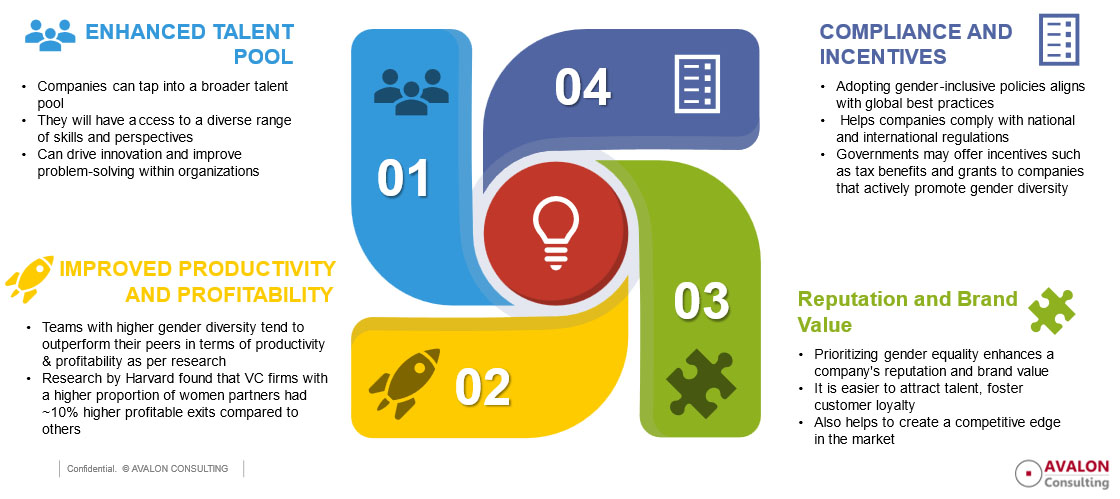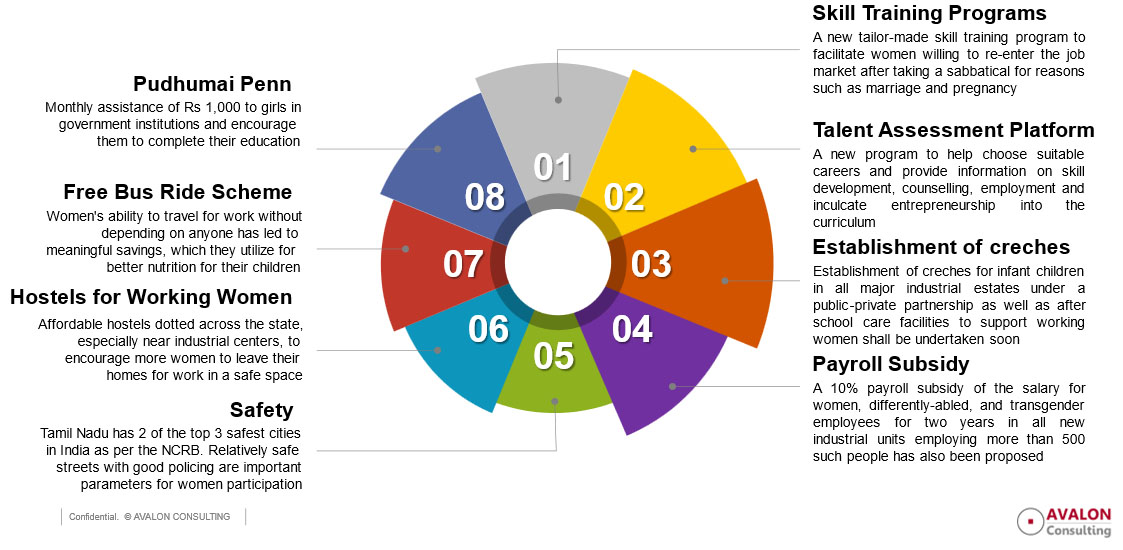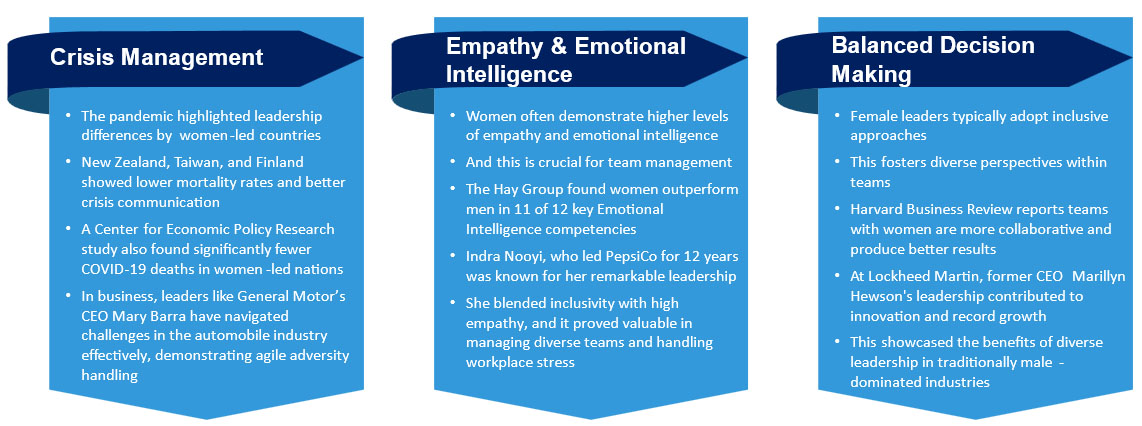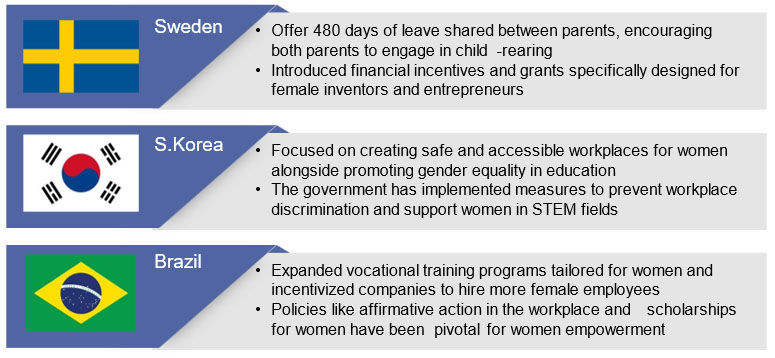Ganesh Shewatkar, Associate Vice President and Darshan Dutta, Senior Consultant at Avalon Consulting, co-authored an article titled “India@2047”.
They emphasized how boosting women’s workforce participation is critical to India’s aspiration of becoming a developed nation by 2047. The article highlights successful regional and global examples, and calls for inclusive policies, skill development, and ecosystem support to unlock the full economic potential of gender parity.

Why is it important for India to improve labour force participation of women to meet its goals?
India, the world’s fifth-largest economy with a GDP of USD 4 trillion, aims to become a developed nation by 2047, a vision known as Viksit Bharat@2047. This ambitious goal encompasses achieving high GDP per capita, improving standards of living, and fostering sustainable development. Despite substantial economic growth since independence, India currently ranks 138th globally in nominal GDP per capita and 129th in GDP per capita at purchasing power parity (PPP) as per the International Monetary Fund. A significant challenge in India’s development journey is its low women’s labour force participation. As of 2023, India’s overall labour force participation rate (LFPR) hovers around 30%, with only 33% of women aged 15 and above participating compared to 77% of men. This gender disparity is further highlighted in the Global Gender Gap Report where India’s ranking is ranked 129th in 2024, underscoring the urgent need to address gender parity in the workforce.
Women in Leadership
Women have demonstrated remarkable composure and resilience in managing stressful situations, particularly in leadership roles.
Business Benefits of Gender Diversity
For business leaders, there are several qualities of women which are invaluable and can provide significant benefit to organisations such as:

In India, women’s participation in labour has grown significantly in recent years but still lags compared to developed nations. While women’s labour force participation rate (LFPR) has grown from 23% in 2018-19 to 33% in 2022-23 it is still much lower than males. Countries like Vietnam with a Female LFPR of 63% as against Male LFPR of 75%, along with developed nations, have higher women’s participation in their workforce.
Male dominance is often assumed in manufacturing due to the tough conditions – intense shopfloor work and remote locations. But the four southern states of Tamil Nadu, Karnataka, Andhra Pradesh, and Kerala account for about three-fourths (72%) of all women working in the manufacturing sector. Manipur also has a high gender balance (51% in 2019-20) among those working in its manufacturing sector. This shows that while there are challenges, there are also favourable examples that can be emulated.
Case Study: Tamil Nadu’s Success
Among the four southern states with high women participation, Tamil Nadu stands out as it employs almost half of the working women (~42%) in the manufacturing sector of India. Successive governments in Tamil Nadu have focused on both economic and human development, which has led to high levels of women participation. There are progressive policies and a supportive ecosystem for women such as:

Some companies are already adopting best practices from Tamil Nadu in other states to boost their productivity. For instance, Kirloskar Brothers’ plant in Coimbatore has been managed completely by women since 2011. Inspired by this success, the company has achieved a 35% women employee base in its Sanand plant in Gujarat.
Learning from Global Practices
India can also learn from its counterparts on how to improve women’s labour force participation by examining the policies of countries like Sweden, South Korea, and Brazil:
Moving Forward
There are several existing policies and programs in India which can help support women to join and continue in the workforce. However, the entire ecosystem needs to be well-supported by all parties involved. In terms of education and skill development schemes, which held a lot of promise, such as Beti Bachao Beti Padhao, have failed to reach the heights due to poor implementation and low fund utilization. The much-lauded Pradhan Mantri Kaushal Vikas Yojana (PMKVY) to train youths in industry-relevant skills to make them employable has poor placement statistics. However, there are encouraging signs as well, with childcare support being offered, extended maternity and paternity leaves, and workplace safety regulations being enforced and monitored diligently. As a result, the share of women-led startups has increased to 18% as of 2022 compared to 10% in 2017.
To realize the vision of Viksit Bharat 2047, India must continue to improve women’s labour force participation. A recent Barclays Research report stated that India could achieve an 8% GDP growth rate by ensuring that women account for more than half of the new workforce set to be created by 2030. Women’s participation in the labour force can drive innovation, improve household incomes, and is crucial for an equitable economy.
As India works towards becoming a developed nation by 2047, embracing gender inclusivity is not just a moral imperative but an economic necessity. For this, India needs to address cultural norms, enhance safety and infrastructure, implement supportive policies, and promote skill development. By learning from similar economies and from within the country and leveraging the combined efforts of the private sector and civil society with a commitment to gender equality, India can achieve the vision of Viksit Bharat 2047, creating a prosperous and inclusive future for all.









